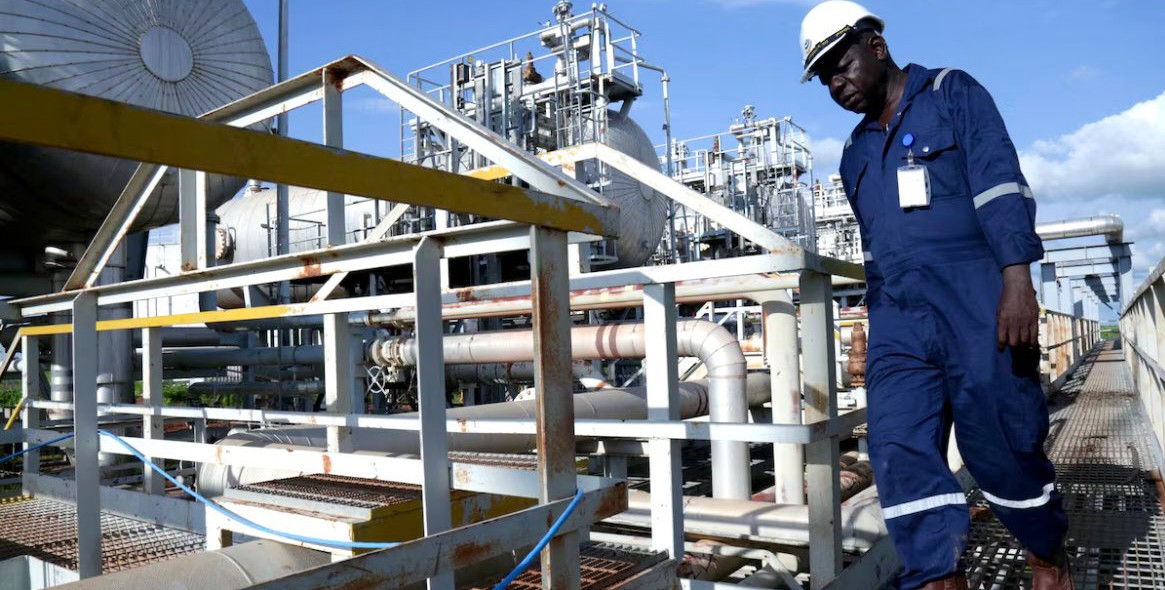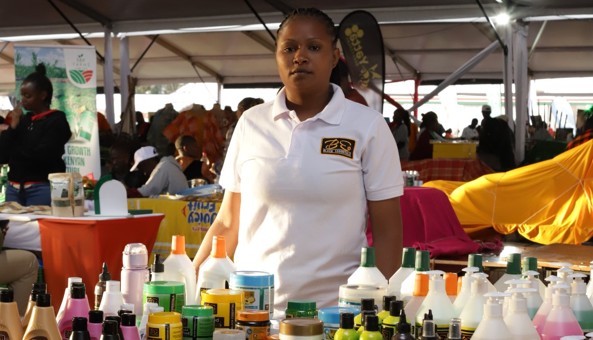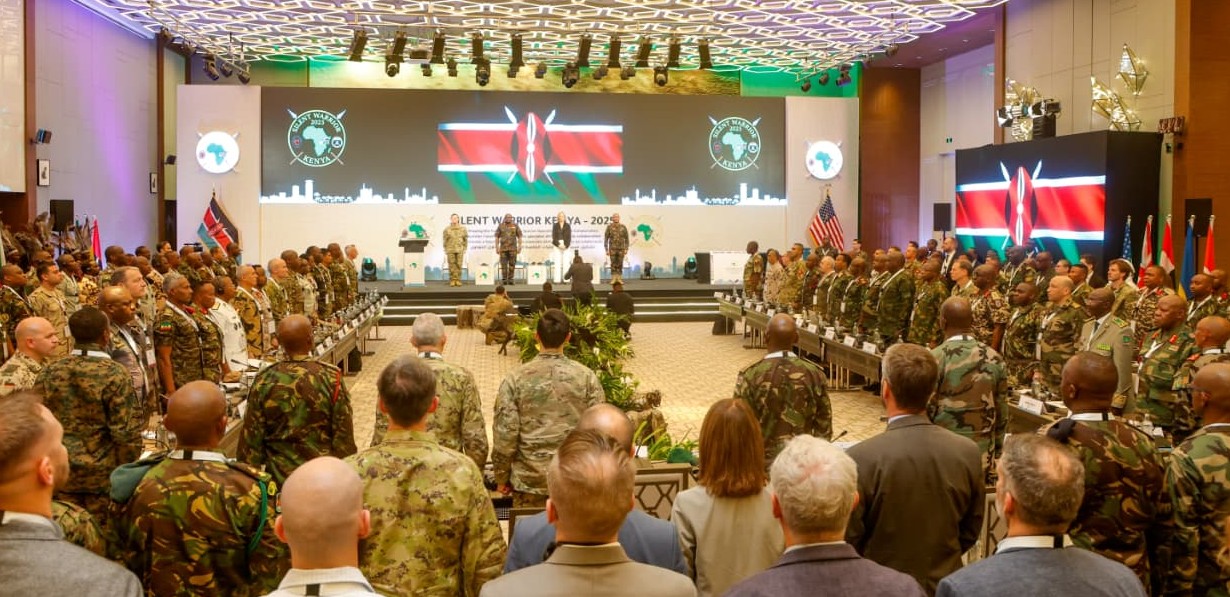UN warns organised crime in Africa’s illicit gold trade threatens global security

The groups are drawn to the sector due to perceived weak enforcement, inconsistent documentation, and regulatory loopholes along trade routes—all of which make it easier to insert illegally sourced gold into supply chains.
Organised criminal groups involved in the sale and distribution of illicit gold from Africa have emerged as a serious global security threat, according to a new report by the United Nations Office on Drugs and Crime (UNODC).
The report highlights how individual miners, organised crime groups, traders, and companies of all sizes contribute to illegal activities in the gold mining sector—each introducing distinct risks and far-reaching impacts, including forced labour, sexual exploitation, entrenched corruption, and armed conflict.
More To Read
- Record cocaine seizure in Haitian waters underlines country’s ‘pivotal’ trafficking role
- Why a woman is killed every 10 minutes; the rising wave of global femicide
- Kenya raises alarm on surge in synthetic drugs, shifting trafficking trends
- UN report reveals global prison deaths surge, homicides highest in the Americas
- Criminal networks exploiting instability to fuel global drug trade - UN
- Billion-dollar Asian cyberscam industry spreading globally, UN says
According to the report titled "Minerals Crime: Illegal Gold Mining," released last week, these groups are drawn to the sector due to perceived weak enforcement, inconsistent documentation, and regulatory loopholes along trade routes—all of which make it easier to insert illegally sourced gold into supply chains. This is especially attractive compared to other criminal activities like drug trafficking, particularly during economic crises that drive up gold prices.
Common tactics deployed include: declaring gold as recycled, misreporting its country of origin, forging export permits, and bribing officials to obtain mining concessions and avoiding legal consequences related to environmental, labour, or safety violations.
"After the refining and smelting phase, the origin of the gold becomes nearly impossible to trace, making it one of the most vulnerable points in the supply chain," the report says.
To hide their operations, the global report says the groups are constantly adapting their modes of operations, exploiting advancements in transportation, finance, communication, and quickly taking up digital tools, including cryptocurrencies.
Iintegrated into international trade
"Many of these networks are well integrated into international trade, allowing them to launder proceeds and move illegal gold with relative ease," the report adds.
From the mines to the refineries and trading hubs, the report says the precious mineral's journey to market is, therefore, fraught with risk.
"The precious metal often crosses borders before it even reaches refining centres. These international movements offer criminal actors the opportunity to intermingle illegal products with legally mined metal. These risks have only grown since 2008, when the global financial crisis kicked off an unprecedented rise in gold's value."
As a result, the price of gold has risen sharply over the last two decades, reaching a record high in April this year, nearly 50 per cent more than the same time last year.
Illegal mining expansion
And since past price spikes have been linked to increasing OCG involvement in illegal mining, it is likely the current surge will trigger further expansion.
The report explains that OCGs get involved in illegal mining often as part of a wider portfolio, using the income to fund other activities whose effects can be wide and deep.
Others are politically motivated and have used profits from illegal gold mining to maintain control of territory, directly challenging state authority as local populations are often left vulnerable to sexual exploitation, forced labour, and displacement, which can lead to recruitment into militias.
Corporations, too, also get involved in illegal mining, some by design, and others by default, in a bid to increase profits and reduce costs.
"They use bribery, operate without permits, and bypass labour and environmental regulations. Other corporate structures are specifically established to conduct illegal activities. OCGs that have moved into illegal gold mining are known to have set up shell companies to launder profits. More generally, companies throughout Africa and South America are known to have failed to properly vet their suppliers," the document shows.
"Some trading companies knowingly purchase gold from high-risk or illegal sources, while others fail to carry out meaningful due diligence. By obscuring the origin of gold or mixing legal and illegal batches, traders can launder illegally sourced or trafficked gold into the formal economy."
Regulatory actions
UNODC recommends targeting regulatory actions at these gold refineries to effectively disrupt the entry of illegal gold into the international market.
The vulnerabilities in the mining supply chain expose the country of origin to illegal activities such as illegal control of mining sites, kidnapping for ransom and extortion, as well as terror financing.
At the same time, illegal and irresponsible mining leads to severe environmental and health impacts, from contamination of ecosystems to the misuse of hazardous chemicals.
"Environmental harm from artisanal and small-scale mining (ASM), particularly in the context of gold extraction, is often tied to the widespread use of mercury and deforestation," the report notes.
It recommends the adoption of a system to monitor and trace the import and use of illegal and hazardous chemicals in mineral extraction to help reduce associated environmental risks.
Environmental degradation
On their part, large-scale miners led by corporate actors are said to cause environmental degradation courtesy of systemic failures in compliance and accountability.
"Corporations may cause significant harm through illegal dumping of toxic waste or inadequate treatment of hazardous by-products. Independent and transparent audit systems are essential to verify compliance with environmental regulations and waste management standards, and to reduce long-term ecological damage," the document recommends.
It says law enforcement should monitor research into new technologies around traceability in supply chains. Innovations like digital certification systems can help to make it more difficult for illegally sourced minerals and metals to enter global markets.
Vast mineral reserves
Africa plays a major role in global gold production, with an output of hundreds of metric tonnes annually, and holds vast reserves of minerals critical for the energy transition, including cobalt, manganese, and platinum.
A good portion of extraction occurs through artisanal and small-scale mining, which in 2019 engaged nearly 10 million people, particularly in Sub-Saharan Africa.
However, in the Sahel region, artisanal and small-scale gold mining is closely linked to gold smuggling and transnational organised crime.
This gold is then often exported to countries with greater processing capacities, where most of the global imports take place.
Similarly, not all major gold-producing nations in sub-Saharan Africa have refining facilities within their borders, and several countries serve as a refining stop for inter-regional trade.
Global demand for gold continues to rise, driven by its use in jewellery production, its role as an investment asset, and its function as a reserve for central banks. Gold is also used industrially in sectors such as electronics and dentistry.
The primary importers include countries in Europe, such as Switzerland; Western Asia, notably the United Arab Emirates; Southern Asia, including India; and nations across Eastern Asia.
Kenya's production
Though the report does not cite Kenya as having any recognised refinery, it says local legal production here was below three tonnes in 2022.
Kenya, alongside other countries in Eastern and Southern Africa, such as South Sudan, Uganda, Zimbabwe, and South Africa, export gold directly to the United Arab Emirates, which serves not only as an end market but also as a major refining destination. As a result, the country is home to approximately 10 refineries and several local and international gold bullion dealers.
The amount exported, according to official statistics from Africa, does not always match the imports recorded by the buying nations.
"However, a closer analysis of UN Comtrade data for 2022 reveals significant discrepancies in reported gold trade between many African countries and the United Arab Emirates. A positive trade gap was observed with countries such as Mali, Ghana, Niger, Togo, Zambia, Kenya, and Benin, where the value of gold these countries reported exporting to the United Arab Emirates exceeded the value of imports recorded by the United Arab Emirates itself," the report says.
In other cases, such as Guinea, Sudan, South Africa, Libya, Ethiopia, Eritrea, and Malawi, the report says no bilateral gold trade was reported, leaving no data available to assess potential irregularity.
These gaps in reporting point to weaknesses in trade transparency and oversight, which are particularly concerning in relation to ASM gold trade.
"There is also a noticeable gap in the trade data of South Africa's reported gold imports and exports. South Africa is a major gold producer, housing a large gold refinery, and it is also the main destination of declared exports from other African countries," the document shows.
Inaccurately reported
Meanwhile, a recent study found that a significant portion of gold mined in various African countries and exported to non-African countries is inaccurately reported as originating from South Africa.
"The value reported by non-African importing countries often exceeds the amount that South Africa officially exports. As aforementioned, a major problem remains the large volume of ASM gold mined in Africa that is undeclared and which is frequently smuggled across borders," the document shows.
Smuggled gold from eastern and middle Africa, for instance, enters other countries via hand-carrying and transportation by road and commercial flights.
With the United Arab Emirates becoming a major global gold market hub, serving as a key transit point for gold trade to other countries, many African countries, especially in Eastern Africa, now have direct flights to Dubai means the journey becomes short and convenient.
The report adds that gold smuggled from Burkina Faso has been recorded to frequently pass through neighbouring countries like Mali, Togo, and Niger, depending on factors such as security conditions and financial arrangements with buyers and traffickers, before reaching its final destination.
As such, ASM gold operations in this region are often controlled by transnational crime groups and politically-motivated organised crime groups, making this trade particularly vulnerable to illicit activities.
Top Stories Today













































